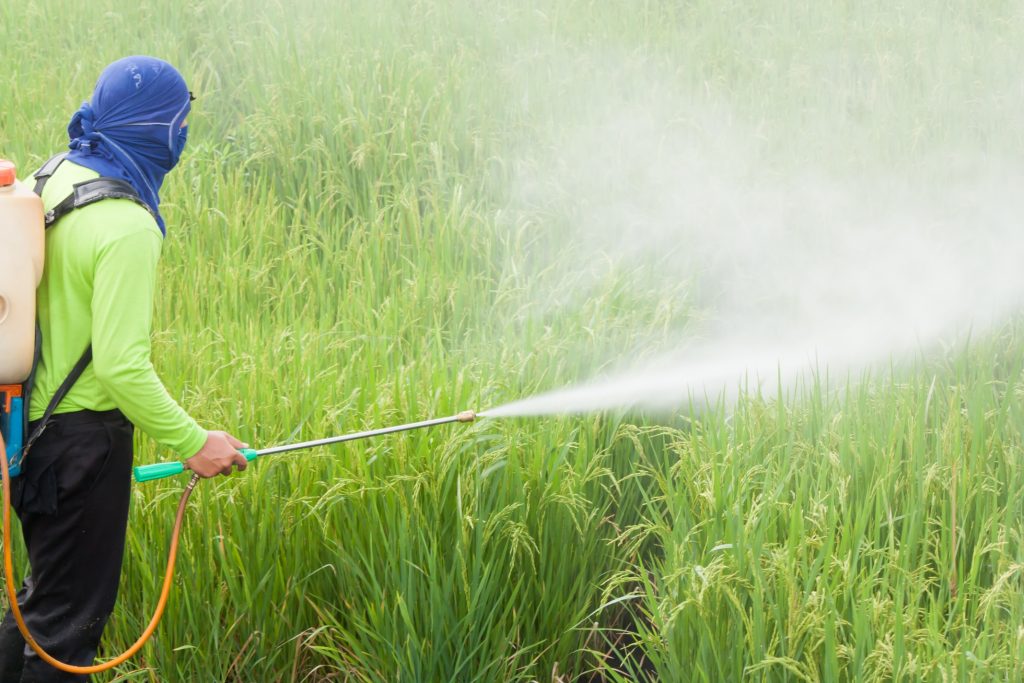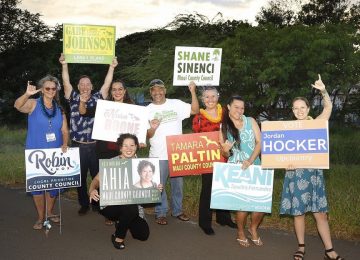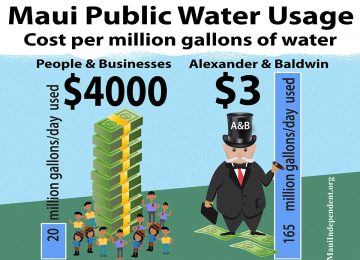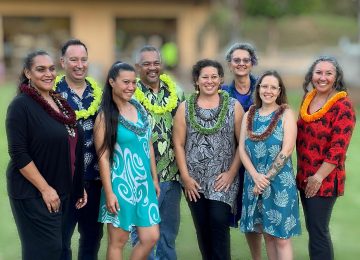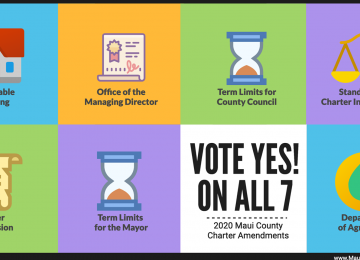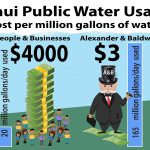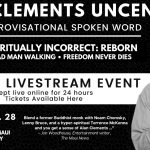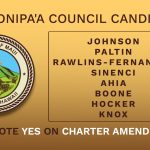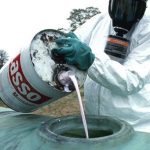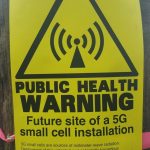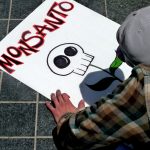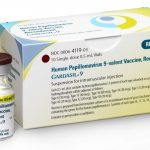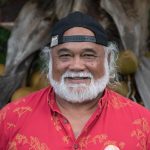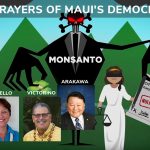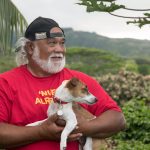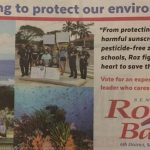The fight against the harmful use of pesticides in Hawai’i has been a slow and strenuous battle. From birth defects reported on Kaua’i to the federal court overruling the SHAKA Movement-lead GMO moratorium, the battle against pesticides has been met with little, or at least not sufficient, legislative action. But, as of this January, it looks like that might begin to change.
Cautiously optimistic. This is what Gary Hooser, community leader and former State Senate Majority Leader representing Kaua’i and Ni’ihau since 2002, says he feels about a recent influx of pesticide regulation and research bills that have come across the table of legislators.
On January 19, three bills were introduced to the Hawai’i Senate Committee on Agriculture and Environment (AEN) that mark another big step in the pesticide battle. Sponsored by AEN chair Mike Gabbard, the bills passed the first hearing, followed by a second reading on February 6.
SB 2126 plans to increase the “Pesticide Use Revolving Fund”, a fund that will fuel the budget for Hawai’i’s pesticide regulatory efforts. It will help the Department of Agriculture to conduct additional pesticide training as well as outreach, which will benefit State residents and our environment.
Those submitting testimony in support of the bill included the Hawai’i Alliance for Progressive Action. “Given the concerns that residents across our state with have expressed around large pesticide users operating near schools, homes and other sensitive areas and management challenges of this issue faced by the SDOA, it is clear that additional resources are needed to properly staff and manage enforcement efforts,” wrote HAPA’s Anne Frederick.
SB 2568 calls for the implementation of the Kauaʻi Joint Fact Finding Report (JFFR), which is a 100 page report that was released in March 2016. According to the Center for Food and Safety, the JFFR “revealed major gaps in pesticide reporting and regulations in Hawaiʻi and emphasized the need for regular pesticide monitoring of air, water, soil and dust, and increased coordination between the Hawaii Department of Agriculture, Department of Education, Department of Land and Natural Resources and the Office of Hawai‘i Affairs.”
Essentially, there are many fields near Kaua’i communities and schools that are sprayed with pesticides and this would call for the State to monitor the effects of that.
The Hawai’i Center for Food Safety’s Keani Rawlins-Fernandez submitted testimony in support of the bill. “It is critical that the state take action to reduce childhood pesticide exposure because toxic exposure pesticides during fetal, neonatal, and infant life can disrupt critical developmental processes,” he urged.
Those opposing the bill included the Hawaii Farm Bureau which attacked the validity of the JFFR report, and the pro-GMO Hawaii Crop Improvement Association which offered the factually incorrect statement that: “There is no evidence of health or environmental impacts associated with the industry’s pesticide use.”
SB 2569 will expand the Hawaii Pesticide Advisory Committee to open it up to more experts as well as tasking the committee with creating better pesticide disclosure standards and buffer zones.
There is also some legislative support for a ban on the restricted use pesticide chlorpyrifos. The House committees on Agriculture and Energy & Environmental Protection advanced a bill for a complete ban on chlorpyrifos. HB 1756 bans the import, use, manufacture, sale, and storage of chlorpyrifos in the state. The bill also seeks to protect workers who mix and apply the chemical and are exposed to unsafe levels of the pesticide.
Testimony supporting the bill was submitted by the Hawaii Nurses Association and HAPA’s Gary Hooser who noted: Chlorpyrifos is a known neurotoxin of which there is no safe amount of exposure permitted for a fetus. This Restricted Use Pesticide is used in large amounts near schools, hospitals and homes and should be banned for outdoor use on crops.
The Hawai’i Department of Agriculture (HDOA) opposed the bill suggesting, “any ban at the State level would be premature, as EPA has yet to make a final determination.”
Due to lack of action against pesticide, last June, the environmental law firm Earthjustice asked the Environmental Protection Agency to revoke the Hawaii Department of Agriculture’s primary authority to investigate and enforce pesticide use violations of federal pesticide law in Hawaii because of lack of enforcement.
Another bill, HB 2722 would protect bees by prohibiting the application of neonicotinoid insecticides and glyphosate herbicides on state land after Dec. 31, 2020, without state permits.
Those supporting the bill included the Sierra Club of Hawaii, which noted: “Glyphosate herbicides and neonicotinoid insecticides are some of the most harmful pesticides applied to our agriculture lands. From the years 2007-2010, the bee population of Hawaiʻi dropped 50%, and today, 7 of 63 of the state’s native bee species have been placed on the endangered species list.”
Beekeeper Jasmine Joy testified that a study of Hawaiʻi’s bee populations and honey supply found glyphosate in 80 percent of the honey that comes from Hawaiʻi. “It’s in our air and water and food,” Joy said.
Those submitting testimony opposing included the Department of Agriculture and the Hawaii Farm Bureau which argued no colony collapse disorder exist in the state, a ban on neonicotinoids would make it difficult to control invasive species in Hawaii, and suggested that glyphosate is safe.
Prominent politician and Kaua’i activist Gary Hooser, was recently interviewed by the Maui Independent about these recent pesticide bills. “There are several bills that are alive and moving, but we need to strengthen them and have stronger disclosure information and buffer zone requirements,” he emphasizes.
“Keani Rawlins-Fernandez from Moloka’i has been instrumental in meeting with legislators and offering testimony and working with people around the state.”
“I think we’re in better shape this year than last year. We have more bills alive and more bills crossing over from the Senate to the House, and the House to the Senate. We had a bill (SB 3095 – which establishes program to create buffer zones around schools near commercial ag. production areas and requires pesticide drift study) that came out of Senator Baker’s committee, which has always been challenging. We’re thankful she was open to passing the bill.”
Hooser reports Senator Mike Gabbard (chair of the Committee on Agriculture and Environment) and Hawaii Island’s Russell Ruderman have been instrumental in promoting pesticide bills. “Senator Ruderman is actually been the introducer for Senate Bill 3095, which involves buffer zones around schools. We’re hoping it will be amended to included disclosure.
“It’s a collaborative effort with the Center for Food Safety and HAPA and doctors stepping up. Civil Beat has an article from a former EPA scientist that is supportive of the work we’re trying to do. We have to keep the momentum going and breakthrough the tremendous clutter of other issues.”
According to the Hawai’i Center for Food Safety, Maui’s Senator Roz Baker deleted important mandatory pesticide disclosure and notification sections from the SB 3095 bill, which was opposed by Monsanto, Alexander & Baldwin Co., and the Hawaii Crop Improvement Association.
If approved, the measure would establish a pilot program creating pesticide buffer zones around ten schools near commercial agriculture land. Proponents of the bill claim pesticide application made students sick, with some requiring hospital treatment.
The State Department of Agriculture strongly opposed it, stating pesticides used are fully vetted and approved by the Environmental Protection Agency and consistently alerting the public about application would require the costly hiring of additional staff.
“There were times when teachers have to close the doors and the windows because of the smell because crop dusters would come nearby and so this is been an ongoing issue for years,” Maui’s Tiare Lawrence testified, concerned about pesticide drift at Pa’ia Elementary School.
Maui County Council member Kelly King had testified in support of the bill before amendment. “I am in strong support of SB 3095, which establishes disclosure and public notification requirements for outdoor application of pesticides in various sensitive areas to protect public health. The people of Hawai‘i have the right to decide whether the risks associated with the use of toxic pesticides in commercial agriculture are acceptable, and we need the information if we are to take action to reduce and prevent the potential negative impacts of such use.”
Bills like these are important to the safety of the community because, as pointed out by Hawai’i Center for Food Safety’s Keani Rawlins-Fernandez, “There are at least 27 schools in Hawai‘i located within a mile of fields where agrochemical companies, like Monsanto and Dow Chemical, spray restricted-use pesticides. we know that these companies spray complex formations of restricted and general use pesticides, year round, multiple times a week, up to sixteen times a day,”
On 2/16, the committee recommended that the measure be passed, with amendments. The votes in CPH were as follows: 6 Aye(s): Senator(s) Baker, Tokuda, S. Chang, Espero; Aye(s) with reservations: Senator(s) Ihara, Ruderman.
Voicing concern about toxic pesticide exposure, Dr James Raelson wrote in a 2/20/2018 article in the Honolulu Star Bulletin, that as a physician on Kauai’s west side he has, “witnessed a troubling rise in the number of complex congenital birth defects. We need to know what companies are spraying on our fields. The claim by some that data show no evidence of birth defects or health problems is just not true. There simply do not exist any well designed epidemiologic studies on Kauai to determine if there has been an increase or not in birth defects in the last 12 years.”
At this point in Hawai’i’s fight against harmful pesticides, after studies and doctors have continued to come out highlighting the effects of their toxicity, it is very evident that legislator support of bills like these are vitally important to the health and progress of Hawai’i. These bills passing their first hearing is a sign that some legislators are taking those studies seriously and are listening to the voice (and testimonies) of the people.
Hopefully legislators will stand up and resist pressure from agro-chemical giants like Monsanto and Syngenta that has previously prevented passing of similar bills to keep us safe from toxic pesticides. Will our politicians listen to the will of the people or will they buckle under? Time will tell.



